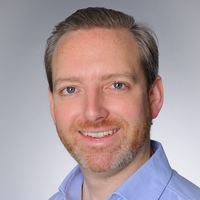The tumour suppressor p53 is the single most frequently mutated gene in human cancers. The p53 protein is activated in response to DNA damage and induces cell cycle arrest, apoptosis, or cellular senescence. Mutations in p53 abrogate this DNA damage checkpoint response leading to survival and proliferation of cells that as a consequence of DNA damage carry further mutations. The mutational inactivation of p53 is thus a key step in tumorigenesis. It was shown that reactivation of p53 in cancer cells of transgenic mice effectively reinstates the tumour suppressive control and eliminates the cancer cells. Therapeutic reactivation of mutated p53 is thus of major interest in devising a widely applicable cancer therapy. In the past decades both structural biology-based chemical approaches as well as more recent immunological approaches have been pursued but thus far have failed to provide clinically impactful p53 therapeutics. We have developed an innovative and new approach using the power of forward genetics for identifying suppressor targets of mutated p53. Here, we will systematically employ our experimental system to isolate targets that could bypass mutated p53 to reinstate the apoptotic response.
Hotspot mutations in the tumour suppressor p53 are the most common mutations in human cancers. Suppression of the apoptotic defect in cells carrying mutated p53 is of major therapeutic interest because it might be applicable to a large number of tumour entities. Here, we will identify bypass mechanisms that could offer new therapeutic routes for specifically reinstating the apoptotic response in cancer cells carrying hotspot mutations in p53. Our project has thus a major translational and potentially therapeutic perspective.

Institute for Genome Stability in Ageing and Disease | CECAD Research Center
CMMC - PI - A 10
bjoern.schumacher[at]uni-koeln.de
show more…+49 221 478 84202
+49 221 478 86510
Institute for Genome Stability in Ageing and Disease | CECAD Research Center
Joseph-Stelzmann-Str. 26
50931 Cologne
Senior Scientist:
Thi Kim Thang Vuong-Brender
PostDocs:
Christian Gallrein
Shoma Ishikawa
Baptiste Ropert
Yao Su
PhD/MD students:
Joao Barata
Robert Bayersdorf
Arturo Bujarrabal
Christina Efraimoglou
Nihan Erden
David Meyer
Nina Shahrizad
Paulo da Silva
Peter Szanto
Khrystyna Totska
Pavana Vaddavalli
Felix Vetterlein
Technicians:
Josephine Ecklebe
Anita Freist
Devon Mares